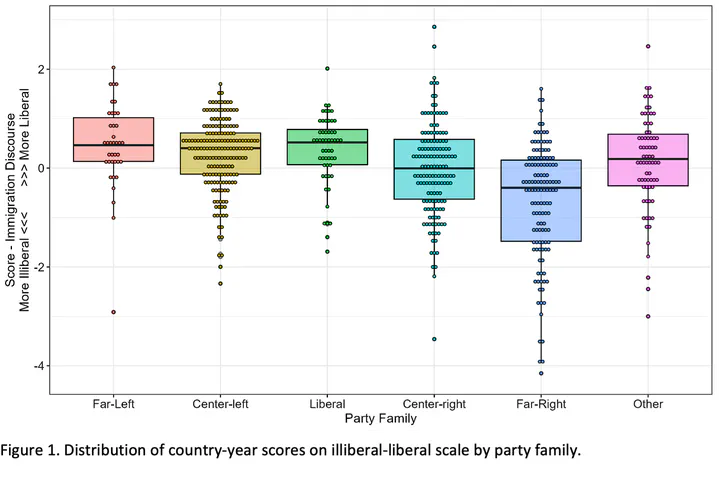Opposition to Government and Back: How Illiberal Parties Shape Immigration Discourse and Party Competition
Apr 2, 2025· ,,·
0 min read
,,·
0 min read
Franziska Wagner
Dean Schafer
Mehmet Yavuz
 Image credit: Getty Images
Image credit: Getty ImagesAbstract
In recent decades, illiberal far-right parties have seen electoral success, reshaped European politics, challenged established norms, and accelerated shifts in political discourse. Thought to be isolated by a cordon sanitaire, these parties are increasingly normalized, gaining footholds in parliament and government—from coalition participation in Austria to majority rule in Hungary. As illiberal far-right parties gain access to power, a pressing question arises. How does their parliamentary and governmental participation influence both their discourse and that of mainstream parties? While we know that far-right parliamentary entry influences mainstream parties’ policy adaptations and strategic positioning, less is known about their systematic effects across countries or how governing responsibilities affect their discourse. Theories of issue competition suggest that parties adjust their stances to maintain voter support, but case studies have suggested diverging results. Leveraging a novel liberal–illiberal scale based on word embeddings and dictionaries, this study examines how far-right parties’ participation in parliaments and governments affects their own immigration discourse and that of mainstream parties by analyzing the interaction between 67 parties in eight European countries (Austria, Czechia, Estonia, Finland, Germany, Hungary, Italy, and Poland) over the last 15 years. Our findings show that mainstream parties, especially conservative ones, follow the shifts in the immigration discourse of far-right parties. Furthermore, we find that far-right parties minimally moderate their anti-immigration discourse when entering government and then radicalize again when they leave. The illiberal far-right therefore appears to have the net effect of pulling their country’s party system to the right on immigration. These findings clarify the consequences of illiberal party normalization for party competition, coalition strategies, and democratic stability in European politics.
Type